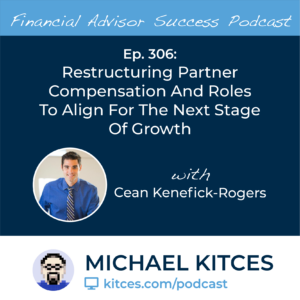With inflation running hot, a potential recession looming, and both stock and bond markets seeing significant drops so far this year, there is no shortage of potential stressors for financial planning clients. And as crises arise and stress builds up, some clients may reach a tipping point where they seek out their advisor looking for answers to ensure their financial plan remains on track. While it might be tempting to answer the client’s concerns coolly and directly, starting the conversation by first asking the client questions can result in a more fruitful discussion.
During times of stress, whether induced by market turmoil or other unpredictable factors, an individual’s first reaction is often fear. But sometimes this fear can morph into anger, as feelings of anger can give an individual a sense of control as opposed to the disempowering feelings of helplessness and vulnerability that often come with fear. So when a client calls and appears to be angry about situations beyond their control, it is important for advisors to recognize that fear may be the client’s underlying emotion behind the outward anger they are displaying. Further, this also means that while the client may appear to be angry with the advisor, they may actually be reacting from fear of a stressful situation.
When an angry client contacts their advisor during periods of financial stress, an advisor’s first instinct might be to directly address their concerns, perhaps by explaining how the client’s portfolio is diversified or that the market is almost certain to bounce back at some point in the future. But to an angry client, these quick answers could feel dismissive or combative, potentially escalating the situation. Instead of trying to answer the client’s concerns immediately and directly, the advisor can start the conversation with a series of questions to help the client diffuse their anger and better understand their underlying feelings. By engaging in active listening (e.g., by reflecting the client’s answers back to them), advisors can better understand the client’s feelings and thought processes while allowing the client to feel heard. Next, asking questions that help the client realize that there is always an alternative ‘Plan B’ solution (and figuring out what such a plan could look like) can empower the client by reassuring them that it is still within their power to take action and prevent their plan from failing, even if their market fears came true.
Ultimately, the key point is that crises are likely to come up for clients over the course of a relationship that lasts many years, and an advisor’s reaction to their client’s fear and anger can make the difference between provoking heated emotions and helping the client feel like they have gained more control over the situation. By asking questions, actively listening, and exploring possible scenarios – rather than immediately giving answers – advisors can skillfully diffuse stressful situations and potentially strengthen the bond with their client in the process!

 Welcome back to the 307th episode of the Financial Advisor Success Podcast!
Welcome back to the 307th episode of the Financial Advisor Success Podcast! Welcome back to the 306th episode of the Financial Advisor Success Podcast!
Welcome back to the 306th episode of the Financial Advisor Success Podcast!
